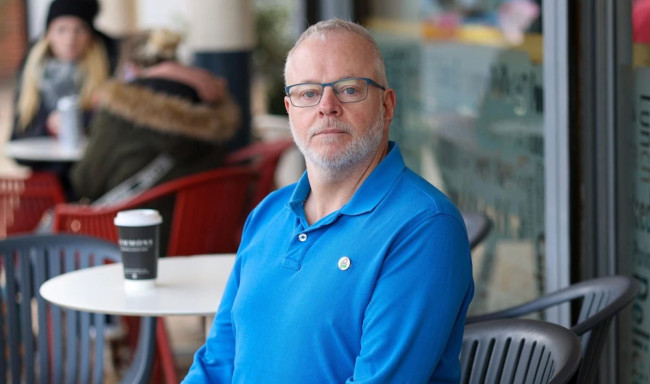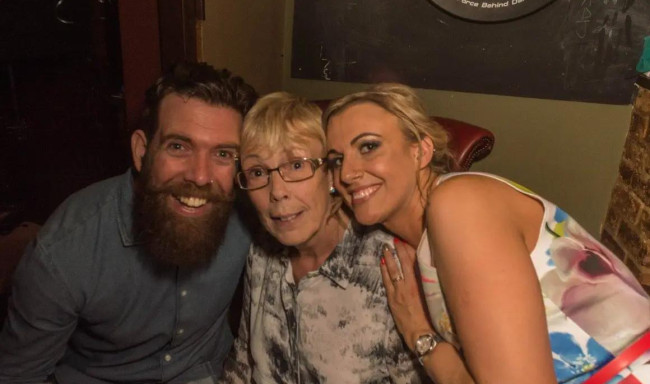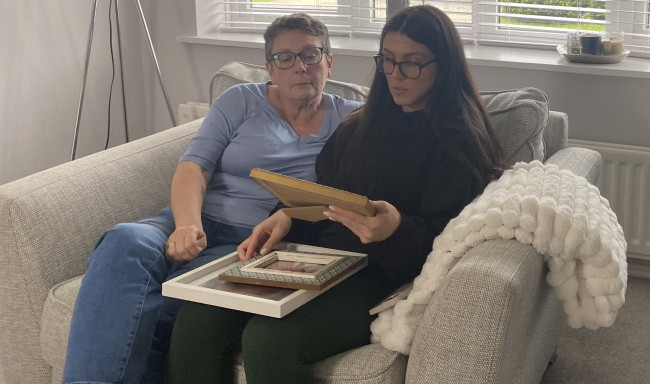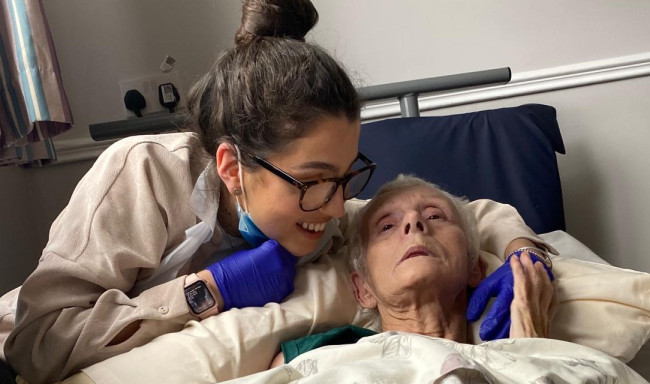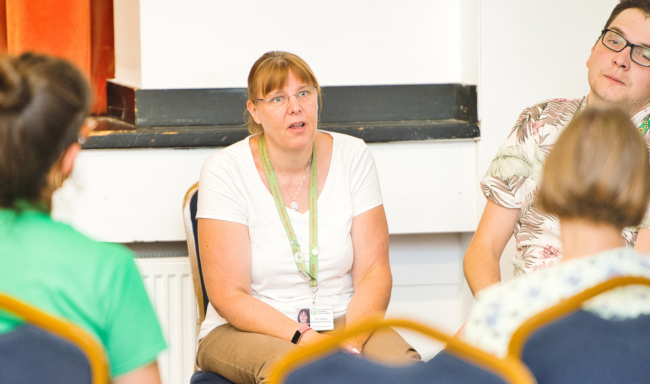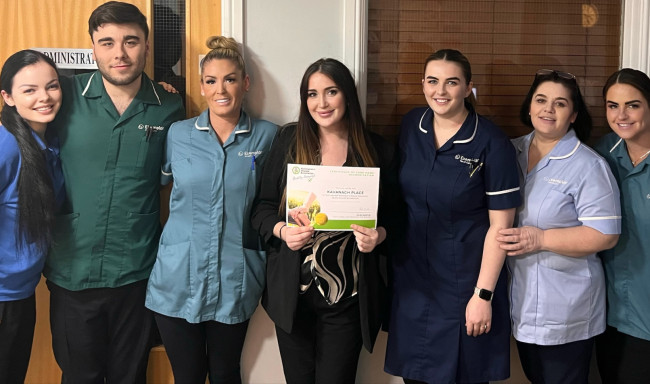Emma shares her experience of working with her social worker to apply for Continuing Health Care to fund her dad's care.
If an individual’s primary need for care is a health need the full cost of their care should be paid by the NHS via funding called Continuing Health Care (CHC). Continuing Health Care requires a high standard of evidence which demonstrates the need for this type of funding and it is advisable to get help from care staff or social worker to do this.
Please tell us a little bit about you and your dad
My dad was diagnosed with Huntington's disease in May 2014, two years after his father had passed away with complications from Huntington’s. My dad got tested as he was already beginning to show symptoms - particularly behavioural and he already had some chorea. Back at that time Dad was living in quite a remote part of Cornwall whereas I was in Wiltshire so we made the decision to move him closer so he had more support in the future from myself and my brother. Dad moved to Wiltshire in the summer of 2015, I was 24 years old and took on the role of his carer.
At first, my caring duties were companionship, managing finances and doing the food shop once a week. But after a couple of years, it changed to carrying out personal care and cooking meals - quite often daily. I began to struggle to manage everything once Dad's needs increased but Dad refused to accept help from others for quite some time.
Fortunately, in 2021 Dad started accepting carers four times a day but would sometimes be verbally aggressive and would still decline a lot of personal care. After being found on the floor one morning by his carer, Dad was admitted to hospital in March 2022 with COVID-19. It was scary, but he thankfully recovered well. I made a very difficult decision at this point, as I hold Power of Attorney for Health and Welfare, I declined Dad’s discharge from the hospital. It was so hard because I knew Dad wanted to stay at home - but I had to step in and act in his best interests - at this point he was just not safe to stay at home on his own. In April 2022 he moved to a residential care home whilst his needs were being assessed, and in December 2022 he moved to his forever home where he is now thriving and living his best life!
How did you find the application process for continuing health care?
I knew Continuing Health Care (CHC) existed from speaking to others in the community. I had heard that a lot of people hadn’t been granted Continuing Health Care so I hadn’t started looking into it yet. I didn’t really know how far Dad was on his Huntington’s journey and whether he’d be accepted or not. To be honest, I think I was very overwhelmed with all things Huntington’s disease related by this point, and the thought of starting a new journey and applying for CHC was just a bit too much for me to cope with.
When Dad moved into the residential care home his social worker at the time suggested I looked into it and offered to sort out the application for me - she was so helpful! We were very fortunate in that she took care of everything. Following on from the initial application, an in-person assessment meeting was planned and I was invited to attend to advocate for Dad. The manager of the care home, a CHC nurse, a social worker from the local authority and Dad were also present. We had a lengthy discussion working through a ‘CHC checklist’ to see what Dad's needs were and if they were currently being met.
At the end of the meeting the care home manager said that we would need to find a better-suited environment for Dad in order to better meet those needs as that particular care home was not equipped to manage Dad's needs going forward.
How did you find the process of finding a suitable care home for your dad?
My first port-of-call was to look on the Huntington’s Disease Association website to see if there were any Quality Assured care homes local to us that the charity had accredited. In an ideal world, I wanted Dad to stay close to us so we could visit often, but it was a difficult balance between an environment that best meets his needs and location.
During the CHC in-person assessment the CHC nurse had advised that she knows of an amazing place where she knows of other Huntington’s disease patients. Unfortunately it was over an hour away from us, which was quite difficult for me to get my head around as I was used to visiting Dad several times a week. I contacted a few local nursing homes in my area but due to Dad's diagnosis they all came back saying they couldn’t support him. I spoke to family, and spoke to Dad's CHC nurse about my concerns about distance but knew deep down this home would be the best place for Dad, now and in the future - and it really is! I visit as often as I can, but at the same time I’ve learnt to try and not feel guilty if I can’t visit - he’s having a blast and probably doesn’t want me getting in the way of that anyway.
What advice would you give to anyone about to start a CHC application?
Please feel free to reach out to me (Instagram @mypops_and_hd) - I found talking to others in the community who have gone through the process before invaluable.
I would start by watching the video about Continuing Health Care on the Huntington’s Disease Association website which is very informative. I would recommend researching CHC before any assessments are carried out, it’s good to have an idea of what is going to be asked beforehand so you can start thinking about how your or your loved one’s symptoms can fit within the criteria.
Thank you to Emma for sharing her story with us.
Continuing Health Care videos
You can watch the two videos on Continuing Health Care below.
Care home information
Finding a care home that understands the complex needs of someone living with Huntington's can be difficult. We launched our Quality Assured care home accreditation to try to combat these difficulties and ensure that the home and the staff were fully equipped with the knowledge and equipment to adequately care for people with Huntington's disease.
We also offer training for staff in care homes. If your loved one is in a care home that would like to learn more about Huntington's disease and how to provide better care for their Huntington's service users then our Specialist Advisers can help. Please visit our professional page for training opportunities and free care home webinars.

